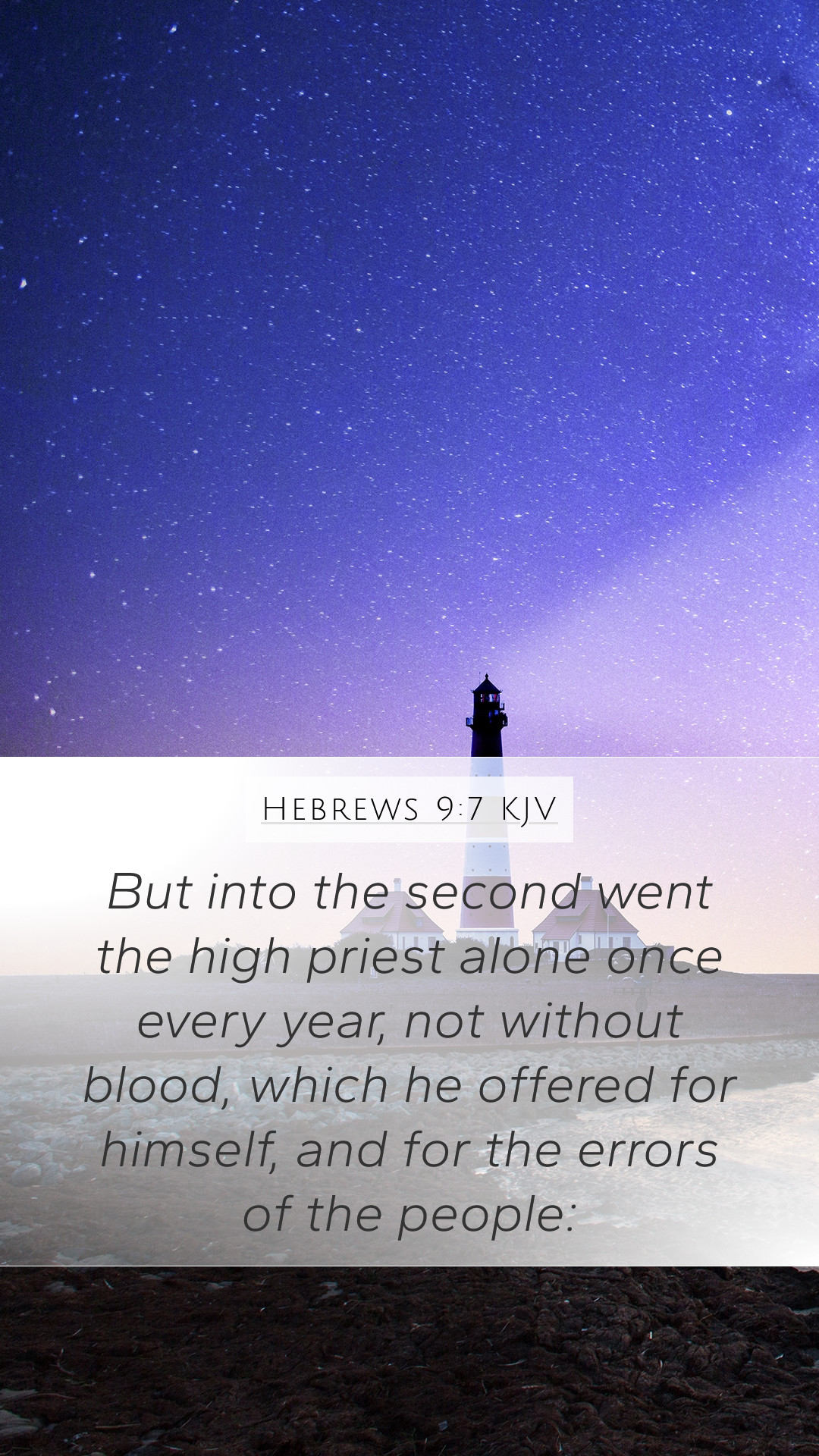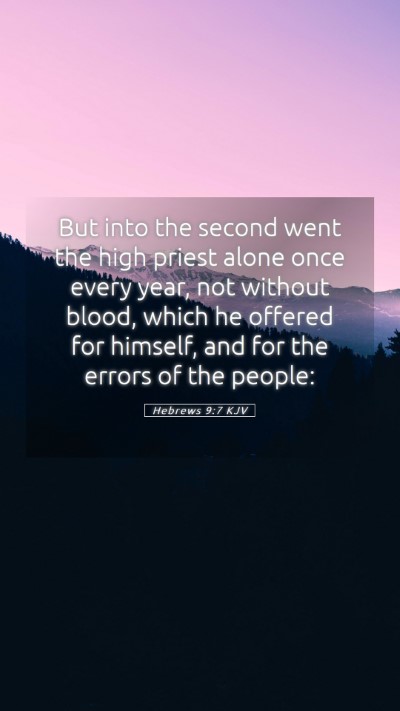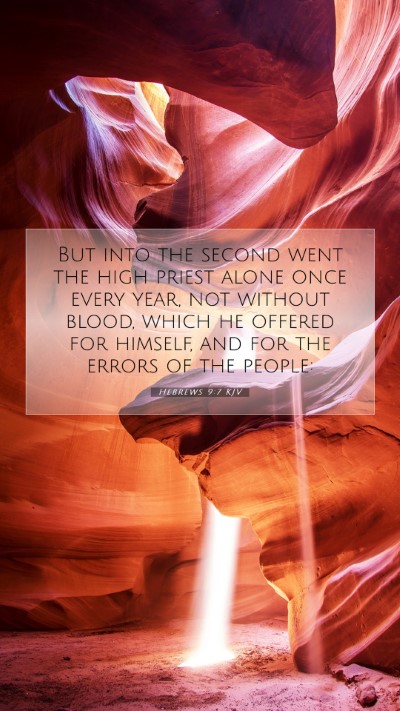Understanding Hebrews 9:7
Hebrews 9:7 states: "But into the second went the high priest alone once every year, not without blood, which he offered for himself, and for the errors of the people."
Bible Verse Commentary
This verse is crucial in the understanding of the sacrificial system outlined in the Old Testament, particularly as it relates to the Day of Atonement. The author of Hebrews emphasizes the exclusivity and solemnity of the high priest's actions.
Key Insights from Public Domain Commentaries
- Matthew Henry: Henry explains that the high priest could only enter the Most Holy Place (the second compartment of the Tabernacle) once a year, and only with blood. This act signifies the gravity of sin and the necessity of atonement.
- Albert Barnes: Barnes notes the distinction between the holy place and the Most Holy Place, suggesting that the annual entry of the high priest into the Most Holy Place was made with deep reverence and to reflect on the sins of the entire nation, underscoring the people’s constant need for atonement.
- Adam Clarke: Clarke elaborates on the symbolic meaning of this ritual, signifying that the sacrifices were not only about atonement but also a representation of Christ’s ultimate sacrifice for humanity. His commentary connects these rituals to a larger narrative of redemption and grace.
Meaning of Bible Verses
Hebrews 9:7 serves as a profound reminder of the Old Testament practices that prefigure the New Covenant established by Christ. The high priest’s annual atonement illustrates the persistent issue of sin and the need for a mediator, a theme that resonates throughout Scripture.
Significance in Biblical Context
The annual entry of the high priest into the Holy of Holies acknowledges the imperfection of the Law and the sacrificial system. It contrasts with the perfect sacrifice of Jesus, who entered the heavenly sanctuary once for all, highlighting the transition from the old covenant to the new.
Application of Hebrews 9:7
Understanding this verse encourages believers to reflect on the profound grace and mercy offered through Christ. It invites individuals to consider the significance of Christ’s sacrifice in their lives and the ongoing need for atonement and forgiveness.
Bible Study Insights
This verse is a pivotal study point for those exploring Bible verse meanings and Bible verse interpretations. It encourages deeper theological reflection on the nature of sin, sacrifice, and redemption as conveyed throughout the entirety of Scripture.
Related Bible Cross References
- Leviticus 16:15-16 – Details the Day of Atonement rituals, paralleling the explanation of the high priest’s sacrificial duties.
- Hebrews 4:14-16 – Highlights the significance of Jesus as our High Priest who empathizes with our weaknesses.
- Matthew 26:28 – Discusses Jesus’ blood of the covenant, connecting it to the concept of atonement.
Conclusion
Hebrews 9:7 serves as an essential component of Bible study tools and resources for understanding the sacrificial system and its fulfillment in Christ. As we engage with this text, we delve into the rich tapestry of God's redemptive plan, uncovering profound truths that resonate within our spiritual journeys.


